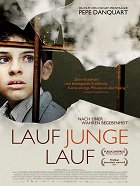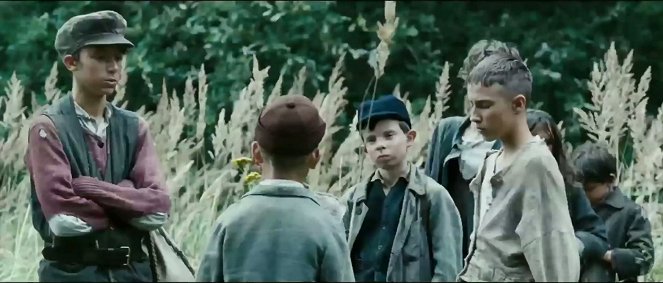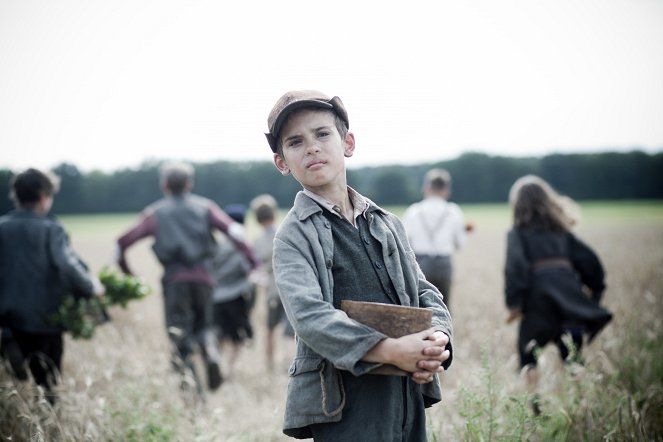Director:
Pepe DanquartGuión:
Heinrich HaddingCámara:
Daniel GottschalkMúsica:
Stéphane MouchaReparto:
Andrzej Tkacz, Kamil Tkacz, Elisabeth Duda, Itay Tiran, Łukasz Gajdzis, Przemyslaw Sadowski, Jeanette Hain, Rainer Bock, Grazyna Szapolowska (más)Sinopsis(1)
RUN BOY RUN is the true story of Jurek, an eight-year-old boy who escapes from the Warsaw ghetto, then manages to survive in the woods and working as a farmhand, disguising himself as a Polish orphan. He encounters people who will betray him for a reward, who will beat him up or try to kill him, and he meets those who will do and risk almost everything to help him. Jurek's resilience is put to the ultimate test when an accident cripples him, making it harder to find work. But he struggles against all odds. Eventually the Russians reach his area and Jurek even finds a family where he could stay. Yet he is betrayed again, and a young man from a Jewish orphanage forcefully tries to bring Jurek back to his people and his faith. As Jurek revisits his hometown and his abandoned home, we find out that the inner voice that has kept him hanging on over the years is in fact the echo of an earlier incident, a twist of fate that is as heartbreaking as it is encouraging and that will now help Jurek in making a choice between his true and his adopted identity. (texto oficial de la distribuidora)
(más)Videos (1)
Reseñas (2)
I guess my highest praise for my truly unfavorite "children in wartime" subgenre is that it didn't offend me. Even though here, too, the kid is cute, the times are bad, the Germans are blabla and the bread is hard, still I didn't feel the need to swallow a bullet with this one, as with the contemporaries in striped pyjamas or with stolen books. Compared to them, the fugitive boy has an undeniable dramaturgical advantage in that he's constantly forced to change places, and thus the film is always visibly moving somewhere (though basically, for most of the film, the protagonist is just wandering around). However, the direction here has quite significant limitations, which bubble to the surface especially in the moments when the filmmakers try to imply a longer time gap between scene A and scene B, because the relationships between the central boy and his community are always defined by the opening scene of their encounter and do not develop again for the rest of, say, the six months that the boy spends with the character. Sure, that doesn't make the film last three and a half hours, and thank goodness for that, but even so, this story feels like a stump right up to the end.
()
The stories from World War II still amaze and surprise. And it doesn’t really matter how many I’ve seen and how many were shot by various directors around the world. They still provide a certain testimony of the time back then, which will never disappear from the history of the human race. Run Boy Run is the story of a boy who was dealt the worst cards in life from perhaps all possible and impossible directions. But each time he got up and carried on, which is admirable. At times, the film reminded me of the Soviet brutality of Come and See. The only difference is that this film is not as brutal, which is not so surprising, because Come and See goes beyond all possible film limits with its naturalism. But this film is a story worth seeing. And the final scene will make the audience smile, at least, which is sometimes needed in the stories from the Second World War.
()




Anuncio